One day in 2014, Muhidin walked along Sedayu beach in Gangga district, Lombok Utara regency. The 60-year-old man saw a mother turtle just finished burrying her eggs on the shore. Actually, this is a usual sighting for him, even since his childhood.
However, he felt something different about the mother turtle that day. The mother turtle seemed hesitant to leave the beach, as if she was worried about leaving her eggs. The turtle walked for a while then stopped, looked back, then walked again and stopped to look back.
“She seemed worried, as if she wanted to say ‘save my eggs, please,'” Muhidin said.
As he approached the mother turtle, he remembered seeing her teary eyes.
Since he met the turtle that day, Muhidin felt compelled to save the animal’s habitat in Sedayu. With limited capital and knowledge, Muhidin started taking care of the eggs that the turtles had laid on the beach. Oftenly, he asked for turtle eggs or bought them from the hunters. For safety reason, the eggs buried by the mother turtle on the beach sand were moved to buckets or sandboxes until they hatch.
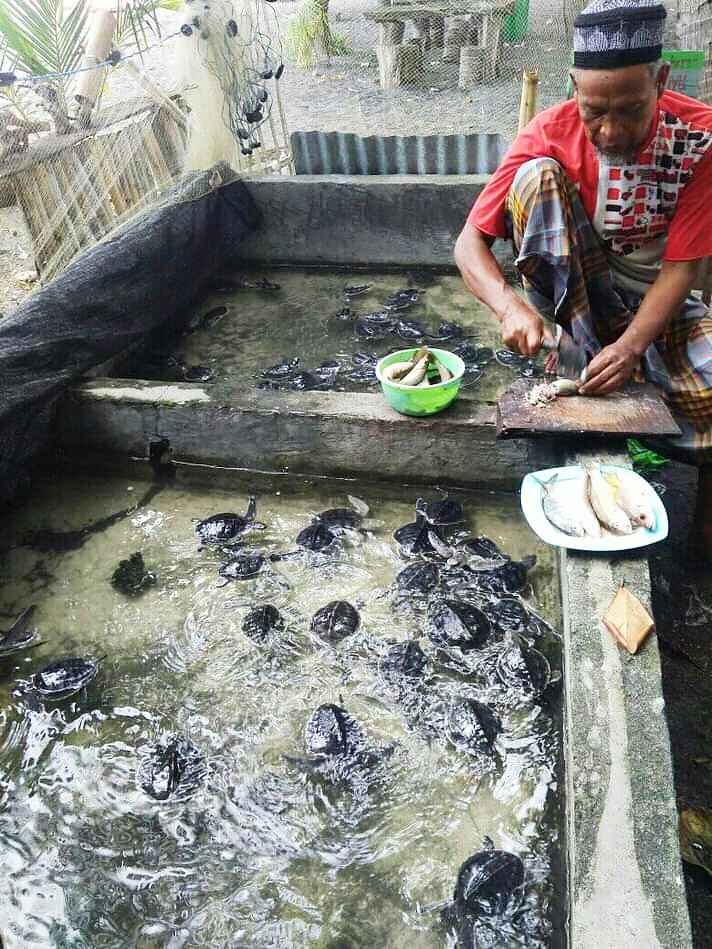
In the first time, many eggs failed to hatch. Out of the total 400 eggs he collected, only 70 of them could successfully hatch. Even then, not all of the hatchlings survived. This happened because Muhidin were too soon to release the baby turtles into the sea after they came out of the egg shells. They immediately preyed by seabirds and other predators, such as large fish.
To avoid the turtle eggs from failing to hatch, Muhidin decided to keep the eggs in its initial place and wait until it hatch naturally. He also put up a sign at the location of the eggs to make it easier for him to control it and to avoid any disturbance from local residents. Leaving the egg in its original place was proven to be more successful. The percentage of hatchlings that survive is getting bigger.
To protect the hatchlings from the predators including birds and fish, Muhidin kept them in a pond and feeds them until they were ready to be released into the wild.
The problem is that Muhidin has hundreds of mouth to feed. Oftenly, they eat from fish that Muhidin catch as as a fisherman. However, if the fish are not enough, he has to spend his own money to buy fish in the market. He needs quite a lot of fish, about 5 kilograms per day during four to eight months.
Every year, Muhidin, assisted by his wife and children, is able release no less than 3,000 hatchlings into the sea.
His success in releasing many hatchlings has apparently attracted more turtles into the beach. Now, there are more and more turtles coming to lay their eggs on Sedayu Beach. Turtles have an echolocation ability, which allows them to recognize their environment. Once the eggs hatched, the baby turtles will stay to recognize the environment where they were born, before they plunge into the sea. Then, as a grown up turtle, they will return to their place of birth to lay eggs. “Therefore, if no eggs hatch because the eggs are consumed and sold, no turtles will return to that place,” he said.
Every year, no less than 43 mother turtles always return to the beach to lay eggs, usually in mid-May. In fact, there are so many turtles that sometimes lay their eggs under the hut or in front of Muhidin’s door, which is close to the beach.
Thanks to his persistence in breeding turtle eggs, local residents, who at first did not care about what he did, are now beginning to reduce the hunting of turtle eggs.
Sahlan, a local fisherman, admitted that he finally retired from hunting turtle eggs after seeing Muhidin’s activities. According to Sahlan, what his neighbor did was a noble thing that he had never thought of. “Now, the people here no longer sell turtle eggs. Instead, if anyone finds turtle eggs, we will give them to Idin,” said Sahlan, refering to Muhidin’s nickname.
After seven years of independently carrying out turtle conservation efforts, his expertise on turtles has started to being recognized by more people. Many come to him to learn about turtles, including elementary school students, fishermen, students, lecturers, even researchers.
Back to the years before doing turtle conservation the turtle, Muhidin has always been known for being care to the environment. In 1996, he once blocked three boats with a crew of 20 people, who wanted to catch fish with bombs. He drove his boat to approach the naughty fishermen and shouted at them in the Lombok language: “Nendek keang bom, buek ikan kami ite, lantong anak-anaknya mate derak kami bau ampok selemak.” This means, “Don’t use bombs. It will make us run out of fish here. You might kill all the fish, including the babies. Then we will have nothing to catch later.”
Then, a debate sparked between them, until there was almost a fistfight and the threat of a machete. Muhidin withdrew himself from the fight to seek help. He also gathered the fishermen of Sedayu Beach to chase away the immigrant fishermen.
Finally, about 20 fishing boats from the Sedayu coast came rushing in, successfully repelling the bombers. Since then, no more fishermen dare to catch fish with bombs around Sedayu beach. This has also helped the coral reef covering an area of about one square kilometer on the Sedayu beach to survive.
The Head of the Environmental Pollution Prevention Division at the North Lombok Regency Environment Service (DLH), Abdul Gaib Annas, appreciated Muhidin. According to him, it is difficult to find people like Muhidin, who in his old age are very passionate about preserving tha nature, especially the marine world. “He is a rare person. His sincerity and enthusiasm for preserving turtles makes us very proud,” said Gaib.
According to Gaib, Muhidin so far has never asked the government for help the turtle conservation or demand compensation for the benefit of his family. Even if he asked for something, he only asked the local government to buy loudspeakers and build an ablution place for tourists who came to the beach. Muhidin’s sincerity in doing conservation becomes the attraction of Sedayu beach. “There are many beaches in North Lombok, but only Sedayu beach that has Muhidin,” said Gaib.

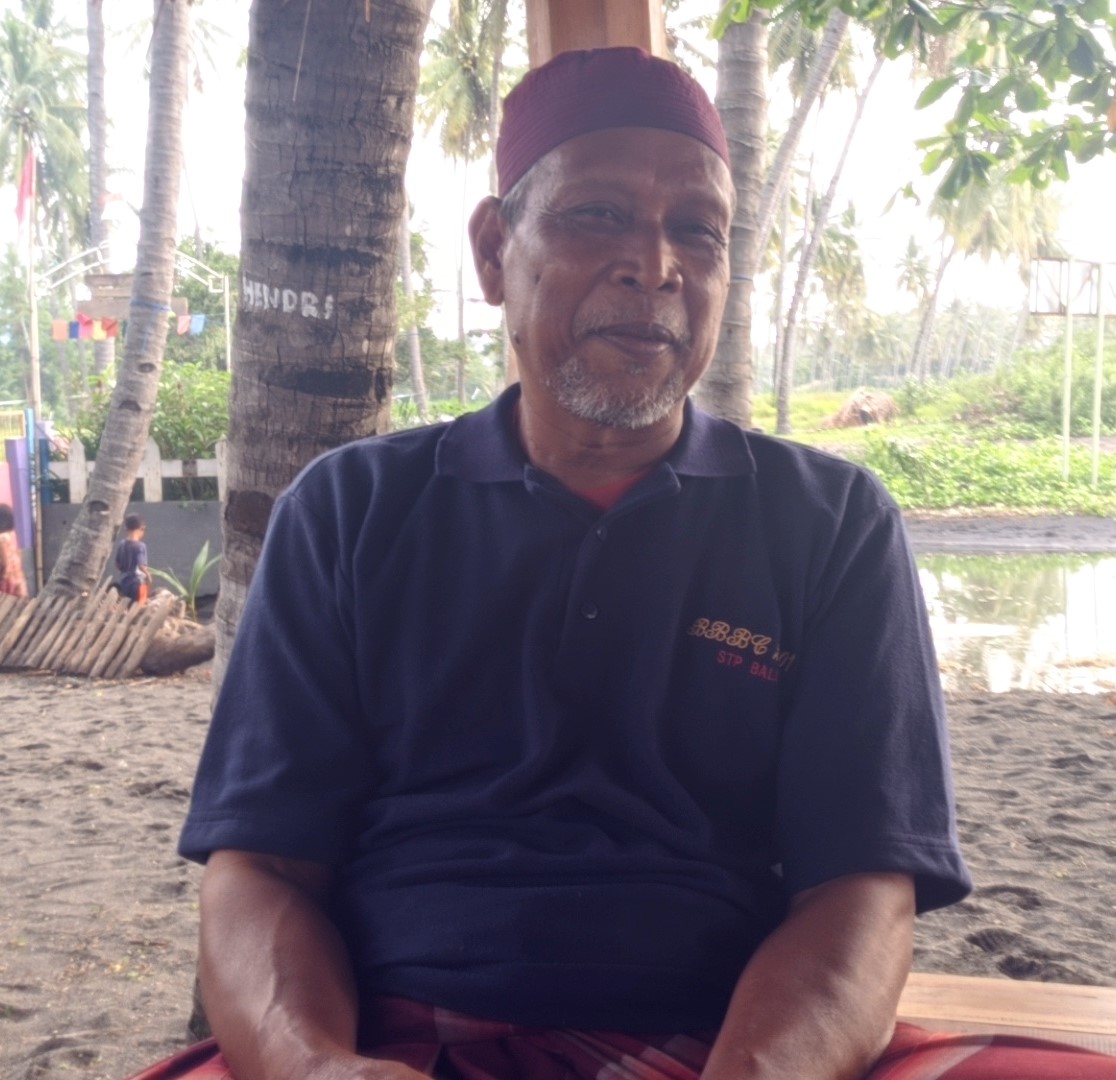
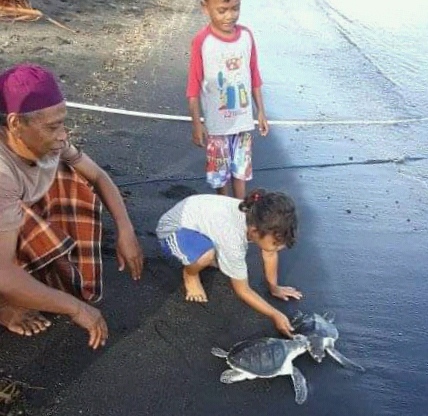
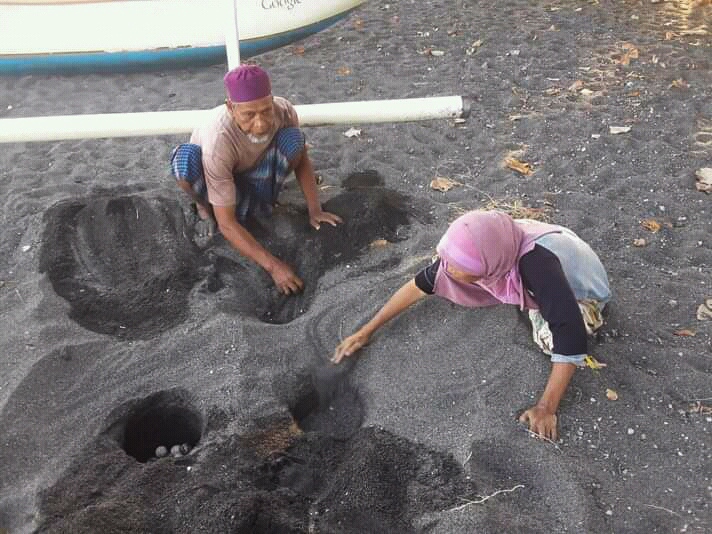
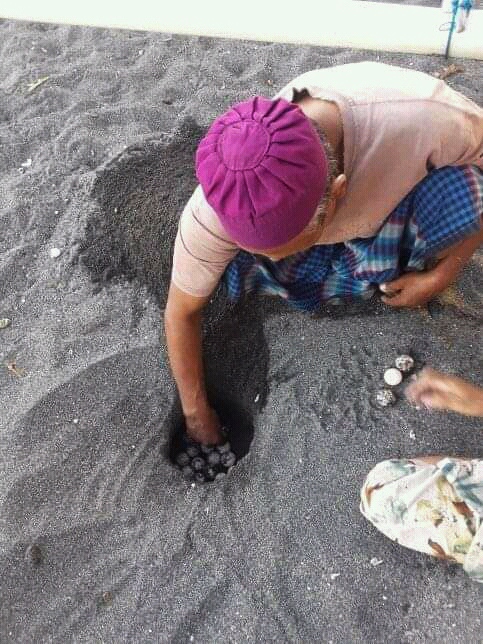
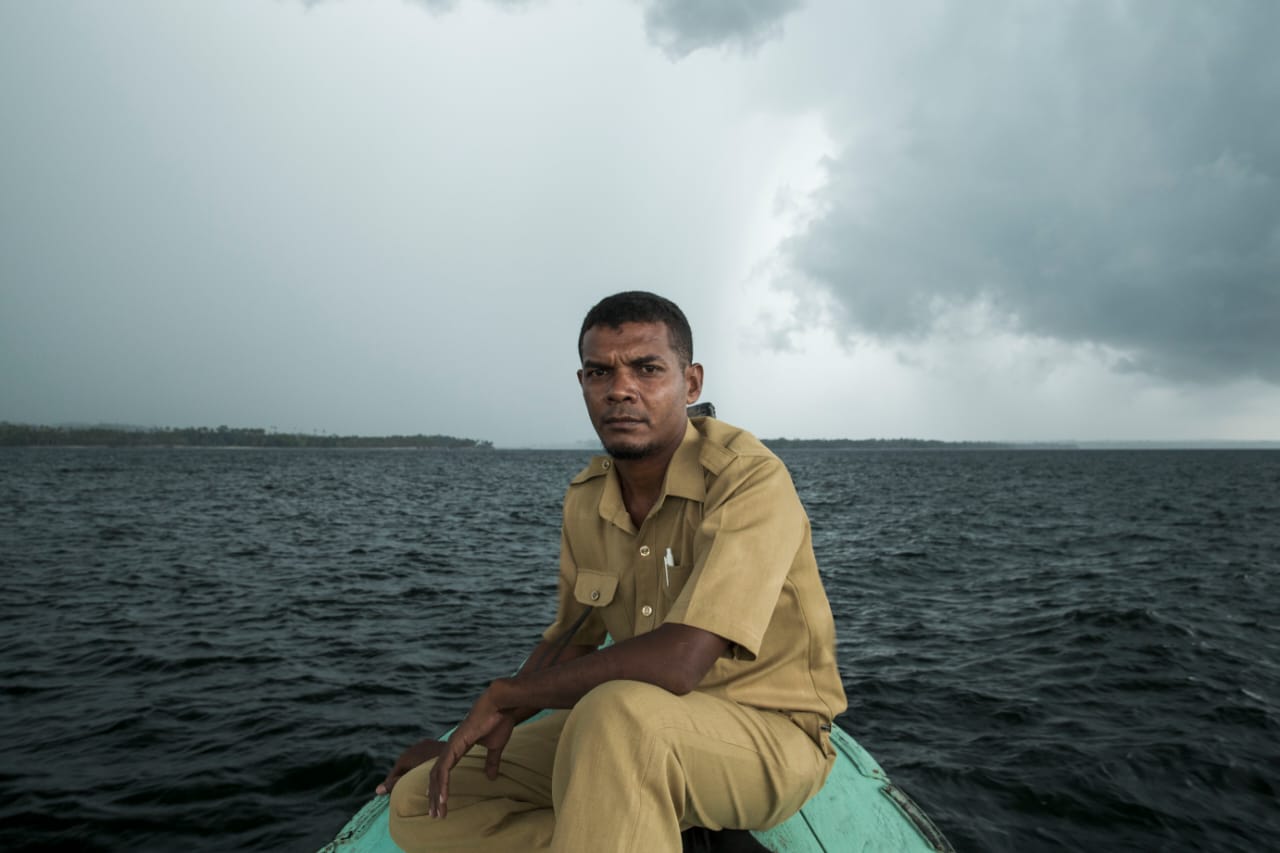
PUBLISHED BY CLIMATE HEROES